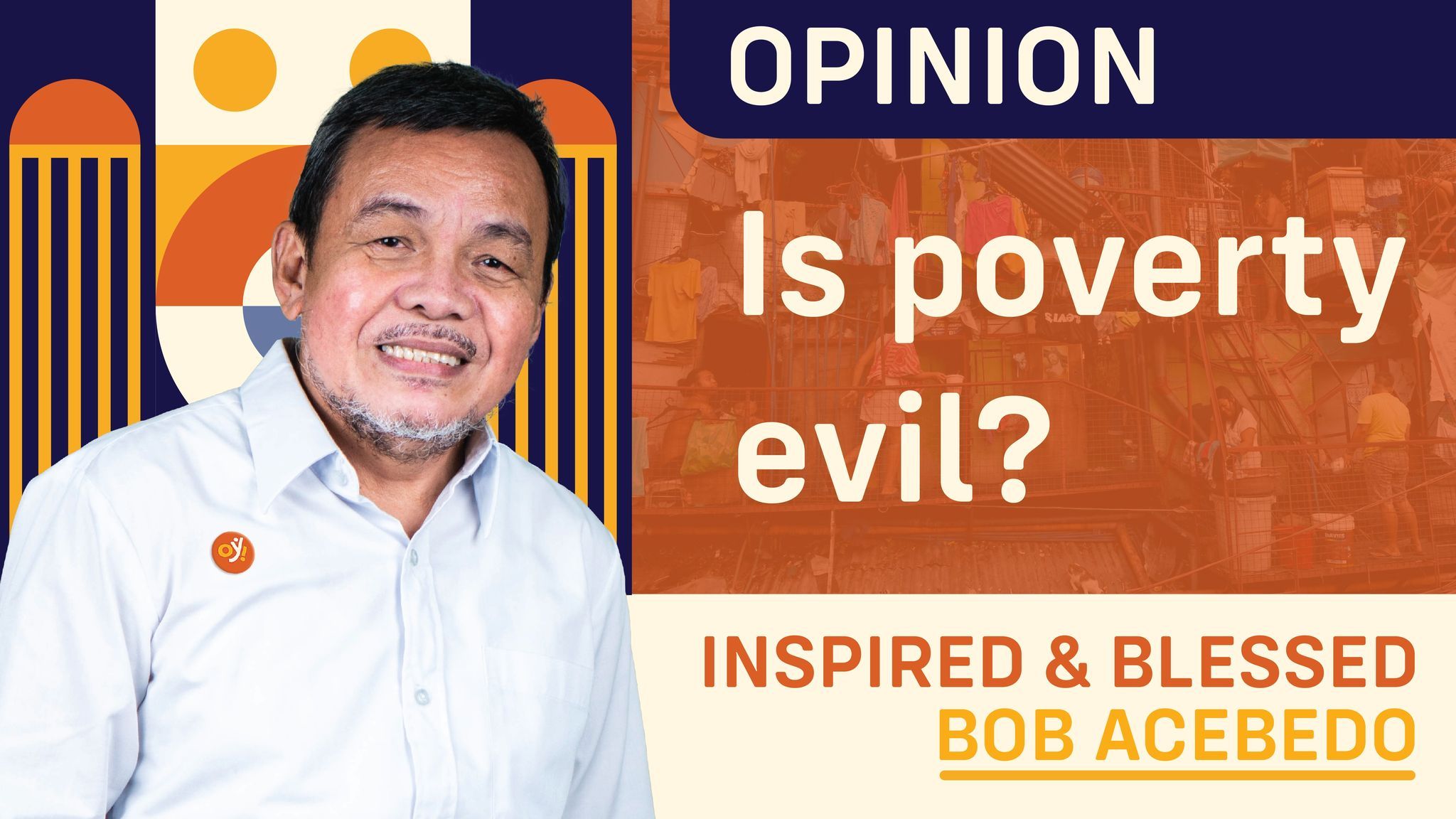By poverty, I’m referring to “material deprivation or penury” or as Indian economist and Nobel Prize laureate Amartya Sen defines it, “the inability to lead a decent or minimally acceptable life due to low income, which makes it difficult to lead a life of freedom and well-being.”
Back in my philosophy studies in the seminary, I was fascinated with Karl Marx’s “dialectical materialism,” which singled out capitalism (by the bourgeoisie) as the root cause of poverty. According to Marx, at the base of the dialectical conflict, the prime culprit is capitalism, giving rise to the social alienation of haves and have-not, of rich and poor classes. Then, this spirals to the political level of alienation, with the state being antithetical to the citizenry and is no longer “of the people, by the people, and for the people”. And finally, to self-alienation, where the self is alienated from real happiness (read: material happiness) and that religion is fake or merely an “opium of the masses” as it offers only an “illusory” or out-of-this-world happiness.
Now, is poverty really evil? Two important points are worth examining in trying to answer this question.
One, to say that poverty or the scourge of deprivation and penury is evil is to presuppose that it is attributed to a source or cause. If the suffering or impoverishment of one is due to an unjust action by another, then poverty is a moral evil which is caused by another person or institution.
If poverty is indeed an evil, then there must be some wickedness or culpability behind it – some wrong-doing that causes such human tragedy to happen. In this context, therefore, it can be assumed that for the manifold manifestations of poverty – starvation, unemployment, human trafficking, spiraling of crimes, etc. – there are wrong-doers or persons causing such scourge.
Ostensibly, George Bernard Shaw’s observation (in his 1907 brilliant play, Major Barbara) that “the greatest of evils and the worst of crimes is poverty” still resonates to our day.
My second point is that if poverty is indeed evil that has perennially plagued humanity, is it – like natural and moral evils – a given or necessary phenomenon? For which reason, thus, Jesus in Matthew 26:11 aptly quipped, “The poor you will always have with you.”
If so, what could be the reasons, if there are, why poverty is seemingly a “sine qua non” (literally translated, “cannot be without”) of our human scheme of things?
Perhaps, it is because we’re but, since the time of creation and our expulsion from Eden, journeying in this ever-evolving life and universe yet full of imperfections and moral inequities.
Or, perhaps too, God tolerates poverty in view of something good – that it could rather be an avenue for exercising generosity and compassion, or “preferential love” for the poor.
The Catechism of the Catholic Church (#2448) verily states: “(Hence), those who are oppressed by poverty are the object of a preferential love on the part of the Church which, since her origin and in spite of the failings of many of her members, has not ceased to work for their relief, defense and liberation.”
In sum, with myself having not been spared too from the scourge of poverty, I have arrived at the following realizations: that poverty and affluence are rather relative concepts or realities; that having more or being rich doesn’t at all make the difference; and that being rich is not measured with material wealth as it is more with finding meaning, purpose, and happiness – or, to say the least, being able to meaningfully live, learn, love, and laugh.
#InspiredAndBlessed #BobAcebedo #IsPovertyEvil #AmartyaSen #Capitalism #KarlMarx #GeorgeBernardShaw #OpinYonColumn #OpinYon #WeTakeAStand
